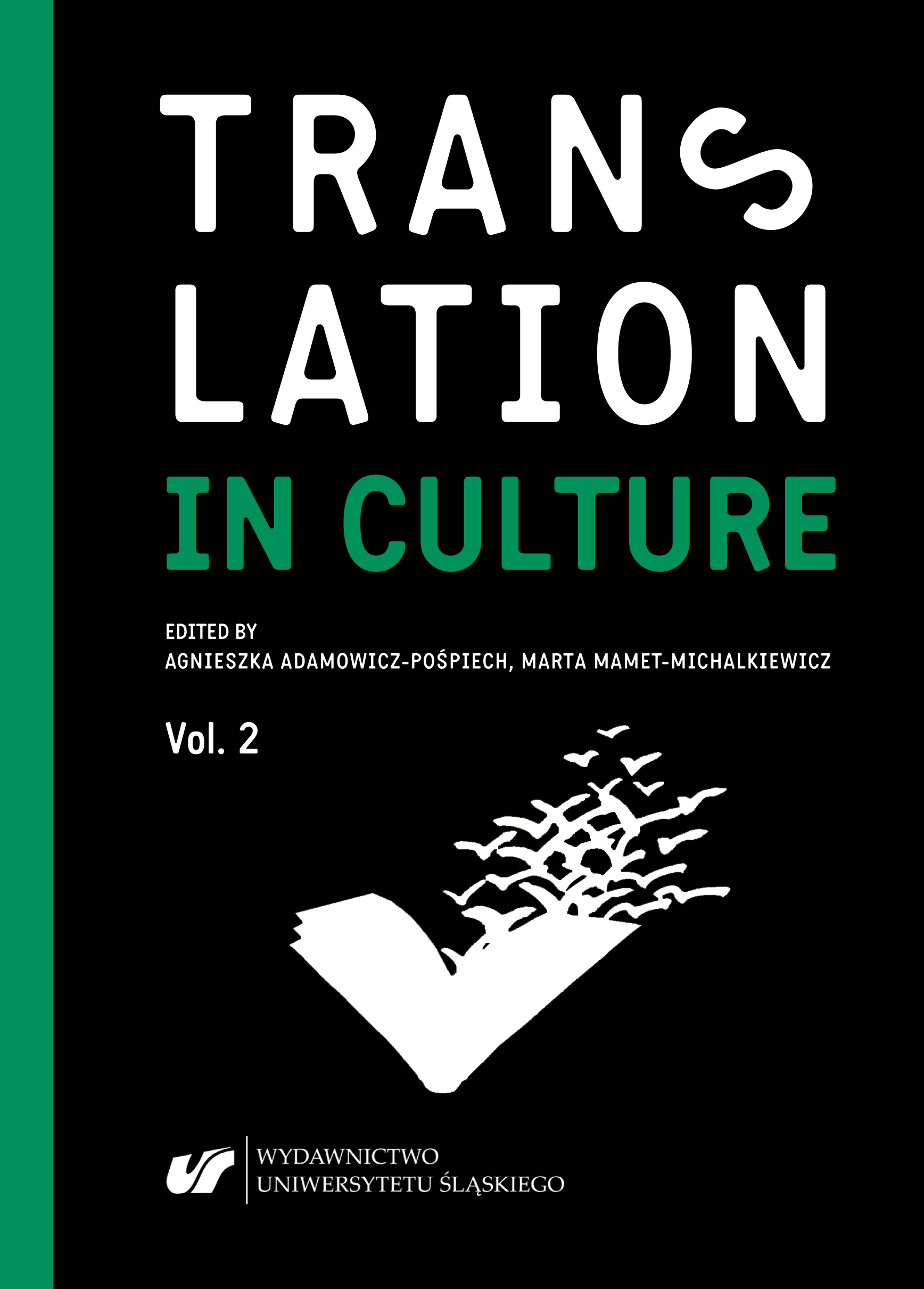Womanism, Equivalence and Creativity in the Polish Translation of Alice Walker’s The Color Purple
Womanism, Equivalence and Creativity in the Polish Translation of Alice Walker’s The Color Purple
Author(s): Marcin Jurkowicz
Subject(s): Language and Literature Studies
Published by: Wydawnictwo Uniwersytetu Śląskiego
Keywords: Alice Walker; womanism; feminism; translation studies;African American;
Summary/Abstract: The purpose of this article is to show the phenomena of equivalence and creativity in the Polish translation of Alice Walker’s The Color Purple done by Michał Kłobukowski. The article focuses on the rendition of womanist themes that Walker’s novel is imbued with. Walker’s womanism can be regarded as a type of Black feminism, and it can be divided into a number of themes connected with different aspects of African-American women’s life, history, and culture. The article describes each theme and proceeds to discuss how it has been translated into Polish. The analysis of the Polish translation is based on the concept of mental associations, as understood by Olgierd Wojtasiewicz. I compare the associations regarding the womanist themes intended by the author of the novel with those evoked by the Polish rendition. The following conclusions can be reached. As language is embedded in culture and since cultures differ, translation equivalence understood as complete sameness of the original text and its translation is not possible. As a result of cultural differences, translators often have to resort to creativity to add “equivalent” features of their translated texts. This, however, is likely to change the meanings intended by the author of the original text. Walker’s womanist themes in The Color Purple are often at odds with their counterparts present in the Polish translation.
Book: Translation in Culture. (In)fidelity in Translation. Vol. 2
- Page Range: 85-104
- Page Count: 20
- Publication Year: 2019
- Language: English
- Content File-PDF

